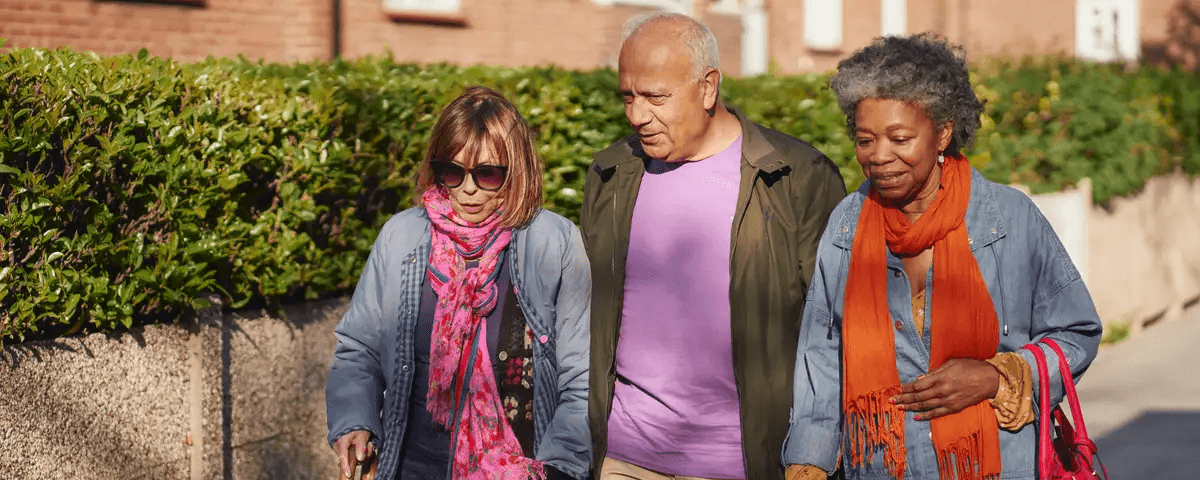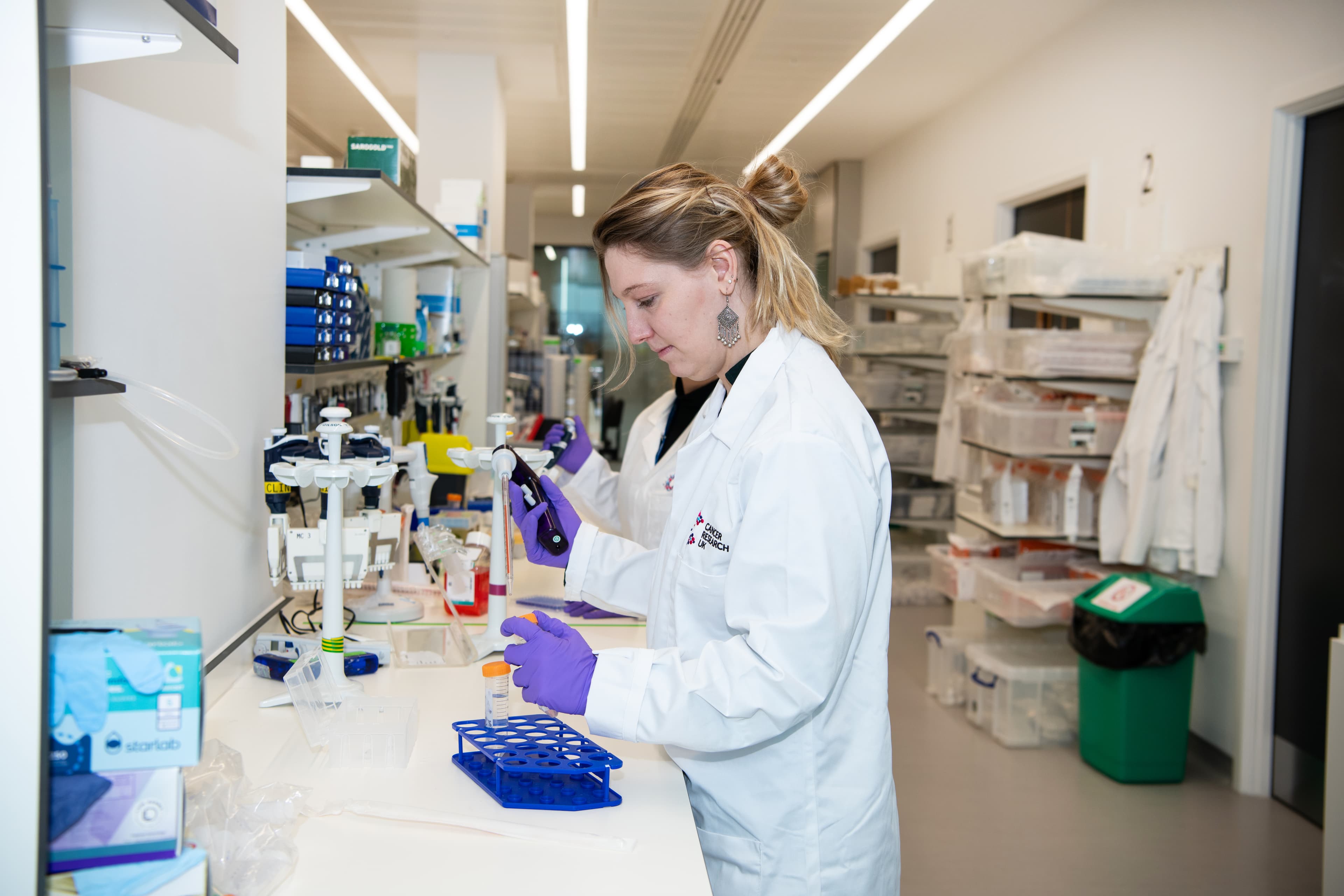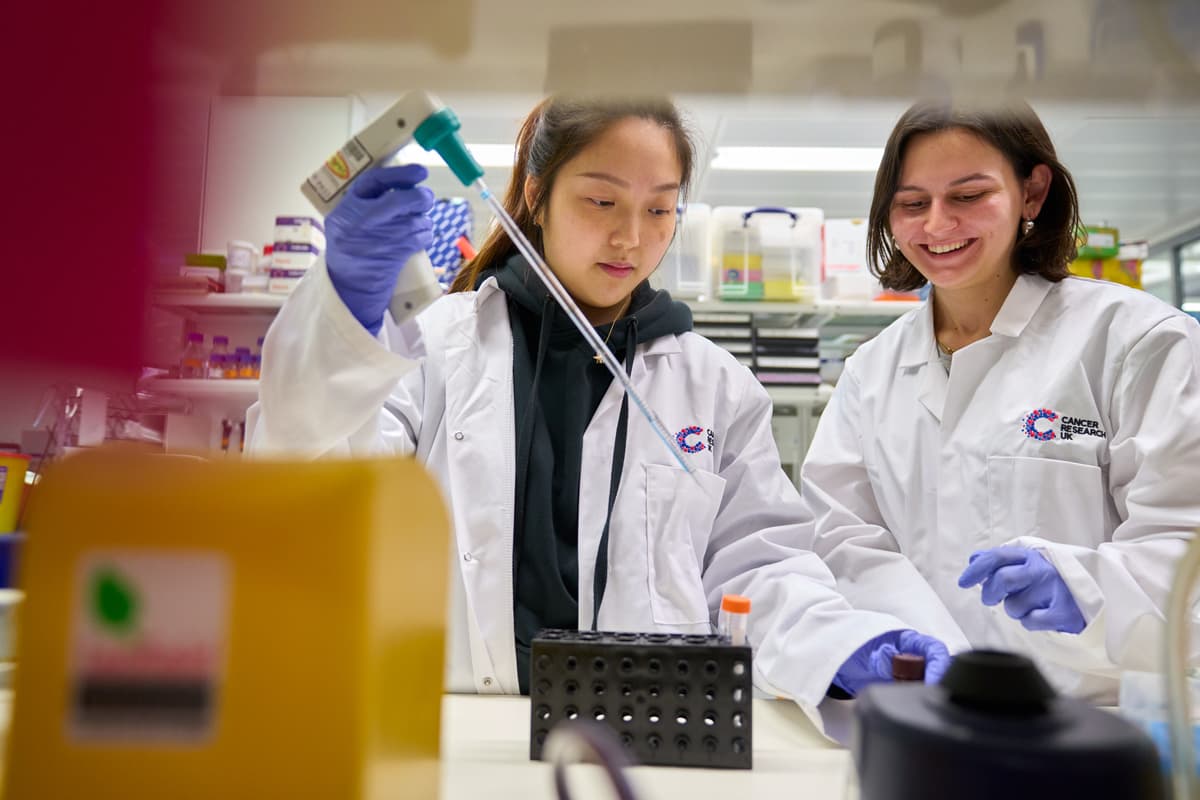
At Cancer Research UK our vision is a world where everybody lives longer, better lives, free from the fear of cancer.
But the burden of cancer isn’t distributed evenly across the population, with unfair differences in cancer outcomes. Our cancer and health inequalities strategy is our five-year commitment to play our critical part in ensuring no one is left behind in our progress.
It sets out how we’ll deepen our understanding of cancer and health inequalities to prioritise actions that make the most significant improvements in cancer outcomes. The strategy also describes how we’ll use our expertise to influence policy and health systems, and amplify our impact through collaboration with communities and strategic partnerships.
The strategy sits within our long-term organisational strategy and our equality, diversity and inclusion strategy, and alongside our research strategy.
Cancer and health inequalities strategy 2025–2030Health inequalities are unfair and avoidable differences in health outcomes across the population. In cancer, we see inequalities across the cancer pathway. These differences arise from a complex interplay of factors, including:
Exposure to cancer-specific risk factors such as smoking
Variation in access to healthcare
A range of wider determinants of health, such as economic deprivation, housing or education
A complicated interaction with biological risk factors
Tackling inequalities in health has been an ambition for all UK countries for decades, but the evidence shows we have made little progress. Here are just a few examples of how inequalities affect all aspects of our health, including our risk of getting and surviving conditions like cancer.
There is evidence of lower survival among people from more deprived areas and geographical variation between and within the UK nations.
It is estimated that 33,000 extra cases each year across the UK can be attributed to socioeconomic deprivation. This is mostly due to differences in the prevalence of smoking - smoking rates are three times higher in the most deprived groups compared to the least deprived.
Our Cancer Awareness Measure ‘Plus’ survey shows that men, people from lower income groups and people from Black and Asian ethnic minority groups are less likely to recognise cancer symptoms.
There is evidence relating to the barriers that different groups face in seeking help from primary care. People are more likely to put off or delay seeking help because of difficulties getting an appointment if they are female, or from Mixed, Asian and Black ethnic groups.
We will continue to engage the public and influence policy makers, researchers, health system leaders and health professionals to tackle cancer and health inequalities. The scale of the inequalities challenge may be daunting, but there are opportunities for meaningful action.

Deepening understanding of cancer and health inequalities and what works to tackle them
We’ll work with others to improve the accessibility and availability of data to enable richer analysis of cancer inequalities.
We’ll also continue to generate and publish evidence, considering the complex social and biological interactions and wider determinants of health and cancer outcomes.

Underpinned by our evidence-based approach, we’ll continue to influence national policy change, while working directly with communities affected by inequalities and supporting health system leaders and health professionals with tailored resources.

We’ll continue to deliver cancer and health information to the public through a variety of channels, including digital, paper and face to face, to provide people with trusted and clear information in a way that is most relevant and helpful for them.
We’ll also review and optimise our content, working directly with underserved groups and in partnership with organisations that represent and engage underserved groups.
We ensure that the voices of people affected by cancer are at the heart of our work.
We’re working to increase the diversity of our involvement network to make sure it’s representative of the wider population by reaching out to communities that historically have been less engaged with our work.
We’ll also reach out to more organisations who represent key groups of people who are impacted by cancer and health inequalities, to gather insights on the barriers they face and inform our efforts to tackle inequalities.
We can’t tackle cancer inequalities alone. Delivering this strategy requires working in partnership with others. We’ll build on our strong foundation of existing partnerships and relationships to proactively collaborate with others to accelerate our work and progress in reducing cancer and health inequalities.
We will work in partnership to advocate for change on a discreet range of issues where we offer impact and expertise, and our voice is strengthened by joining with people or organisations beyond the health sector.

Our strategy renews our focus on making discoveries, driving progress and bringing hope to people affected by cancer.

We want to create a diverse charity where everyone feels like they belong and we’re committed to diversifying our research community. This is how we’ll beat cancer for everyone.

We actively involve people affected by cancer through the Patient Involvement Network. This insight is helping us to beat cancer sooner while ensuring that we’re meeting the need of patients and their families and loved ones.